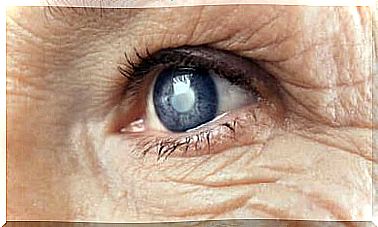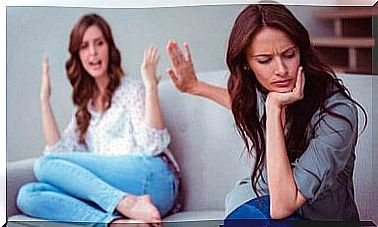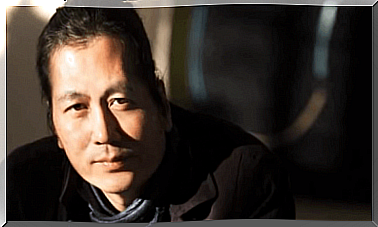To Trust Is Not To Know Everything About Someone: It Is Not To Need To Know Everything
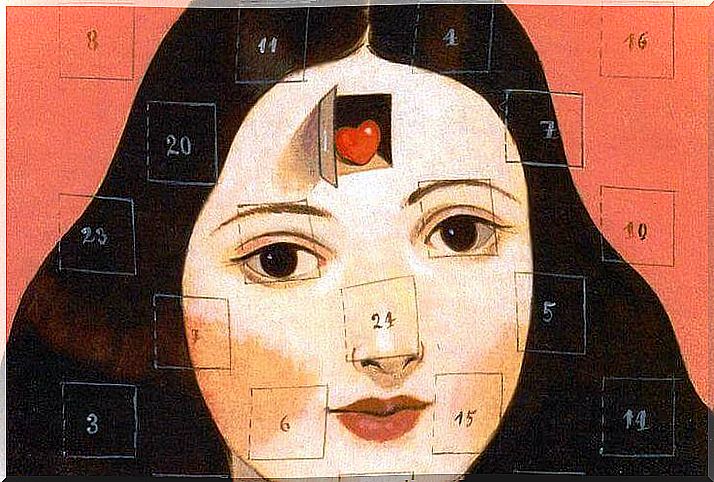
Trusting everyone is like giving away the most delicate thing we have: our heart. Trust is a precious good, a treasure to be revealed with care because it is about what is most beautiful in a relationship of friendship and the strongest in a relationship of couple. We don’t need to know everything about this person because the connection is exceptional. On the other hand, trust is essential for intimacy to arise and develop.
This dimension goes well beyond the simple psychological field. We are talking about an emotional tendon which at the same time edifies our social behavior. Even philosophy and sociology tell us that trust takes on a more authentic and revealing level in humans than in any other animal. They trust animals of the same species by instinct. People sometimes do this consciously, often applying a wise “selection”: a very special filter based on experience.
“To trust everyone is a foolish thing and to trust no one is neurotic awkwardness.”
-Juvenal-
When we talk about trust, we are above all referring to a positive emotion that guarantees the strength of a bond. However, there are few dimensions that define a concrete personality type as the way a person places his trust in others. Low self-esteem, a traumatic childhood, or the experience of betrayal make our trust a more difficult gift to share.
This is a very interesting and nuanced theme that we want to share with you.
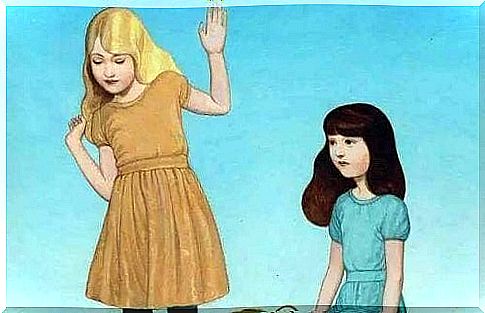
Letting go of trust results in emotional exhaustion
One of the psychological and evolutionary benefits of the concept of trust is that it allows us to temporarily “suspend” our instincts for self-defense, uncertainty and fear. Because few things can lead to greater emotional suffering than being always on the defensive, than being afraid of being hurt or betrayed in our daily experience with our fellow human beings.
To offer our trust to someone supposes, therefore, to put an end to this uncertainty in order to simplify personal relationships. We stop worrying about and seeing the other’s behavior as a threat and, at the same time, we make assumptions about that person’s future behavior: we take it for granted that the interaction will always be positive, that it will do nothing against us and that it will represent this outstretched and friendly hand, this soul full of light which will guide us at every moment.
Trusting doesn’t mean you need to know everything about your partner, family member, or good friend. To have confidence is not to need explanations, it is knowing how to recognize sincerity in a glance, it is to connect our minds to harmonize a daily life where the requirement does not exist and where this control does not exist. unrestrained or that need to reaffirm that connection at all times for the other person to believe us.

In addition, we must remember that our brain needs to simplify and prefers to navigate the waves of a quiet and risk-free daily life. He needs the right emotional balance in which confidence is his best weapon for us to “function”. If we think about it, each of us has put in our minds, as an autopilot, a commander who whispers to us at all times “trust us, get in the car and drive, nothing will happen to you”.
“Trust” this doctor, he knows what he is doing and he will help you. “Have confidence” day after day when you go out into the street, fatality is not something that you encounter at every metro station. If we do not put this autopilot in our mind, we will develop a neurotic drive that will completely disconnect us from reality and our personal equilibrium.
If you want to be trusted, trust others
We have to admit it: once we have been betrayed, it is very difficult to trust someone again. It’s like we’ve had a piece of our entrails torn out. It is a permanent, deep wound that in many cases prevents us from reconnecting so intimately with someone.
“The best way to know if you can trust someone is to first give them your trust.”
-Ernest Hemingway-
The disappointments that hurt the most are those that are experienced with our loved ones. Even so, the most problematic thing about all of this is that this lack of trust spreads to other areas of our life: we start to be wary of almost everything, until one day we become permanent phobics, sad specters feeling an eternal sadness that sends us to the most isolated corners of our society.
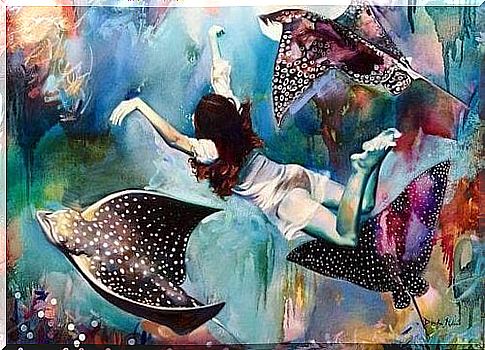
Restoring confidence, the key to vital intelligence
In the “Manual of the Eternal Disenchanted”, we find this chapter which begins with “I will never trust anyone again, people do too much harm, they are selfish and act selflessly”.
To think this implies entering, whether we like it or not, into an irremediable vital entropy, when in reality, as people, we are genetically and evolutionarily predisposed to connect with others. We trust to bond, to be stronger psychologically, intellectually and emotionally and to develop what is now called “vital intelligence”.
Conscious and vital intelligence is a direct invitation to survival and self-realization, where confidence in ourselves and in others is the most powerful substrate to motivate us. Because in the end, whether we want to or not, we have to do it, we have to open up to someone to embrace their being: that’s when we will find ourselves again.
Few things in life can be this satisfying.
Images by Pierre Mornet

